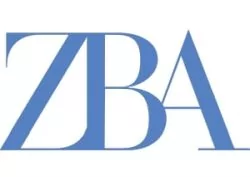- with readers working within the Law Firm industries
- in Africa
OW bunker's bankruptcy has excited much comment internationally and led to a spate of litigation by physical suppliers for recovery of their dues. Jurisdictions typically favoured by such claimants are those which recognise a maritime lien for unpaid bunker supplies or those where the law is uncertain and the delay in setting aside an arrest incentivizes settlement.
It is therefore not unsurprising that the fallout of the OW bankruptcy reached Indian shores- a case where we had the privilege of successfully representing the vessel owner. The absence of a maritime lien for unpaid bunker supplies in India did not deter a tenacious claimant from arresting the vessel MT Valor from the Bombay High Court. In this case, Gulf Petrochem Ltd (an allegedly unpaid physical supplier) arrested the ship MT Valor, as it would not be able to fully monetise its claim from the bankruptcy estate of OW Bunker A/s in Denmark.
The physical supplier's case was simply that OW Bunker Middle East DMCC had approached it to stem bunkers on behalf of the vessel. In essence, the claimant contended that: a) its standard terms and conditions of sale, bound the owner of the vessel and b) the signature of the vessel's Chief Engineer on the Bunker Supply Notes amounted to not merely a receipt of bunkers, but an admission of liability by the owner of the vessel.
MT Valor's Judgement
The Bombay High Court disagreed with the claimant's arguments as it would (if accepted), obliterate the distinction between maritime claims and maritime liens. The Court reaffirmed the legal principle that a claim for unpaid bunkers was not a maritime lien and that an action in rem on a maritime claim could only be maintained to enforce the personal liability of the owner of the vessel. The Court emphasized that the personification theory of an in rem action was a legal fiction invented to assume jurisdiction over non-resident foreigners. The in rem action was not a free standing remedy but was dependent on an in personam action against the person liable for the debt. It was therefore imperative for the claimant to identify who it regarded as the person liable to it.
In the course of a detailed judgement, the Court found that the practice in the bunkering industry was that the physical supplier would ordinarily have no relationship or contact with the vessel owner or charterer as its contractual counter-part would be the non-physical supplier. This analysis was supported by the lack of any correspondence or contact between the registered owner and the claimant. The claimant's reliance on its general terms and conditions of sale was, (according to the Court) wholly misplaced, as it had never been sent to the registered owner. The Court therefore found that the registered owner had no notice of the claimant's terms and conditions of supply and could not therefore be bound by it. Even the claimant's invoices were mailed to OW Bunker Middle East (DMCC) and not the registered owner further fortifying the Court's reasoning.
On finding that the bunker supply had been made at the behest of the erstwhile time charterer of the vessel, (Bryggen Shipping, A/s,) the Court observed that it was common in a time charter for the charterer to procure and pay for bunkers and in doing so the charterer was not acting as the agent of the owner nor binding the owner in any way for such supply. It accordingly ruled that the vessel could not be arrested for the debts of a time charterer as this offended the principle of personal liability of the owner that underpins an action in rem against the vessel.
The claimant's argument that the threshold of inquiry for maintaining an arrest on the 'reasonably arguable best case' test did not warrant a detailed inquiry or examination of the law, was not accepted by the Court. It was incumbent on the claimant to satisfy the Court that on a prima facie view of the facts and matters pleaded when applied to the law, it was entitled to maintain the arrest. The Court accordingly concluded that there was no case for continuing the arrest of the ship Valor.
M.T. Tradewinds
However in another judgement pronounced on the same day in respect of another vessel arrested due to the OW insolvency, the Court upheld the arrest of an (alleged) unpaid physical supplier i.e. Drop Energy Services. This was because the supply of bunkers was made at the behest and at the request of the owner of the vessel MT Tradewinds. The Court appeared to be influenced by the fact that the owner had admitted liability but refused to pay due to competing claims from the liquidators of OW and ING Bank. The Judge whilst observing that the physical supplier had a difficult case at trial could not be persuaded to find that the claimant did not have a "reasonably arguable best case" on the basis of the material on record for the purpose of sustaining the arrest.
Comment
Both judgements delivered by the Bombay High Court are significant for more reasons than one. In the course of affirming well established legal principles, the Court aligned Indian admiralty law to that prevalent in other common law jurisdictions thereby leading to greater certainty to all engaged in international trade with India. Owners and clubs will be comforted by the fact that they will not when trading in Indian waters be subjected to a legal regime which exposes them to a liability for which they never assumed or contracted.
However owners should note that any supply of bunkers made at their behest coupled with an admission of liability may expose them to a potential arrest in India. The outcome in MT Tradewinds case turned on its own peculiar facts. It is accordingly recommended that specific
Indian law advice be sought by owners (whose vessels trade in Indian waters) who have ordered bunkers with OW entities and are faced with claims from physical suppliers. Finally, the efficiency of the process under Indian conditions is illustrated by the fact that judgement was pronounced by the Court within three months of the owners securing the release of the ship and within two weeks of the conclusion of oral arguments. A welcome development which demonstrates the sensitivity of an otherwise overworked Court to prioritizing and 'fast- tracking' ship release applications.
Posted on 06 August 2018 by Zarir Bharucha
The above is a generic analysis and should not be regarded as a substitute for specific advice based on the facts of a client's objectives and specific commercial agreements reached. Please do reach out to us at mail@zba.co.in for any queries.


